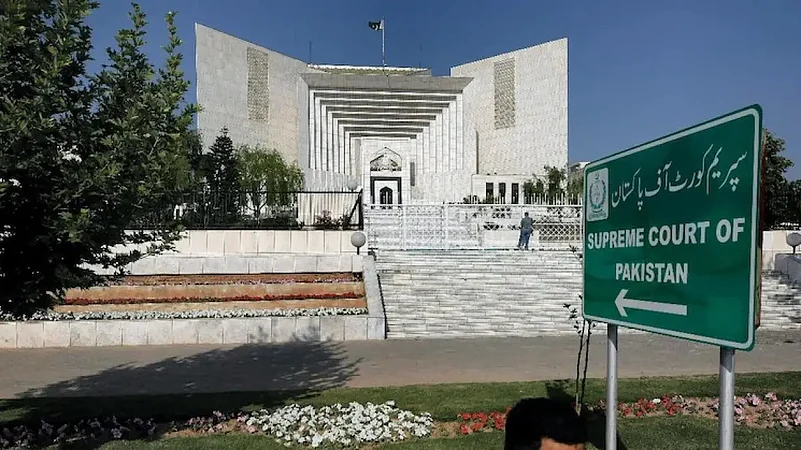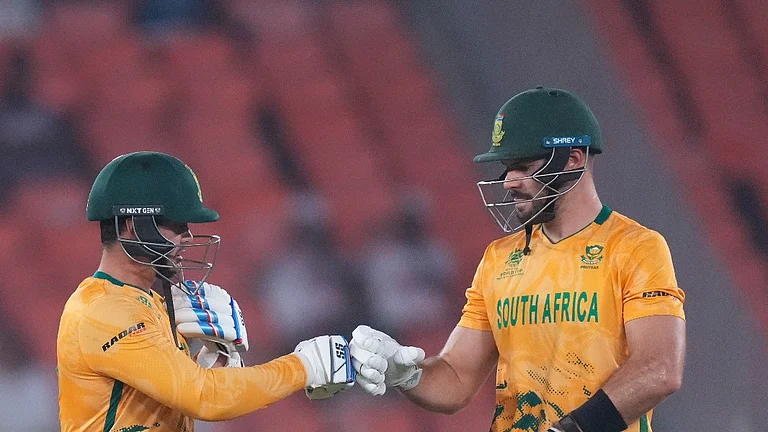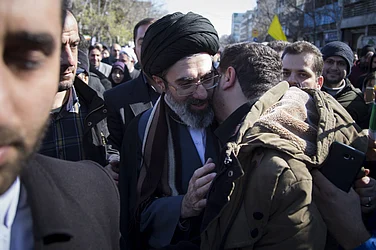Chief Justice of Pakistan Umar Ata Bandial said on Thursday that the Supreme Court cannot force the ruling alliance to hold negotiations with the opposition over the holding of elections in Punjab province, but observed that it appeared that the government was "playing pass-pass.”
Amid uncertainty over the Punjab Assembly's future in spite of Supreme Court orders declaring elections to be held on May 14, a three-member bench led by Justice Bandial resumed hearing of the politically-sensitive case.
However, the hearing was adjourned barely an hour after it started with Justice Bandial saying that a detailed order would be issued later.
"We are not pushing anyone but only finding out a way for the enforcement of the Constitution," he said.
During the hearing, the court raised questions over the government’s “seriousness” regarding holding negotiations with the opposition.
“What steps has the government taken to show its goodwill? It seems like the government is playing pass-pass,” Justice Bandial was quoted as saying by the Dawn newspaper.
At the previous hearing, the court had asked political parties to hold talks on April 26 and come up with a response by April 27 after giving stakeholders a chance to reach an agreement.
However, no talks were held and the government also refused to comply with the April 4 directive.
"If the government was serious about negotiations, it would have made efforts itself. The court can’t force the government to hold negotiations,” the top judge said.
He also remarked that politicians should themselves find solutions to the problems, adding that “the Constitution and our order [on polls] is present” if the differences were not sorted out via talks.
The top judge also expressed hope that talks between ousted premier Imran Khan Pakistan Tehreek-e-Insaf (PTI) party and the government would be held on Thursday.
The court hearing on Thursday came amid a deadlock between the government and PTI over the holding of polls in Punjab province.
The PTI dissolved the Punjab and Khyber Pakhtunkhwa assemblies on January 14 and 18, respectively, in a bid to force the ruling PDM coalition in Islamabad to hold early general elections in the country.
The PTI is determined to press for polls, but the government led by Prime Minister Shehbaz Sharif maintains its stance on simultaneous elections across the country.
Prime Minister Shehbaz Sharif on Wednesday said elections were an issue that needed to be decided in Parliament and added that the appropriate time to conduct them was either in October or November.
Talking about the Supreme Court's direction to the government and opposition to hold talks, he said the court’s “job is not arbitration, but their job is to give orders as per the Constitution and law”. He said that Parliament was the right forum for such matters.
The current National Assembly would complete its term on August 13, and elections would be held after that.
Sharif said there was complete unity in the coalition government and that polls should be held on the same day in the entire country.
According to the Constitution, elections shall be held within 90 days after the dissolution of the lower house. This means that the election must be held by mid-October. The last general election was held in July 2018.
The PTI dissolved the Punjab and Khyber Pakhtunkhwa assemblies on January 14 and 18, respectively, in a bid to force the ruling coalition in Islamabad to hold early general elections in the country.
Sharif pointed out that Parliament had rejected the decision of a three-member bench of the court to hold the election in the Punjab province on May 14.






















